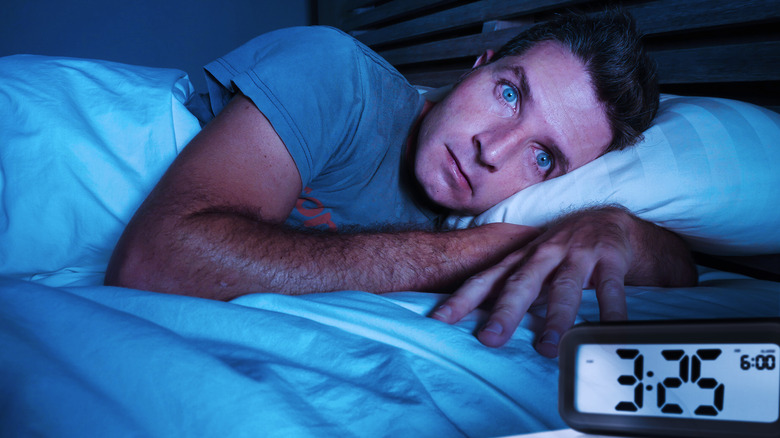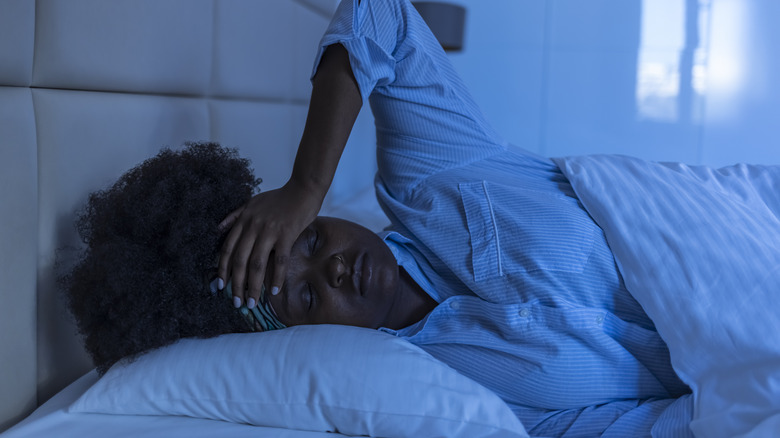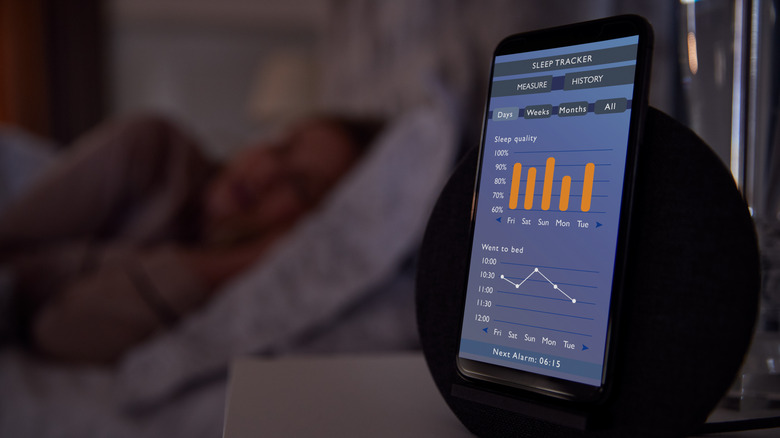When You Wake Up Frequently At Night, This Is What Is What Happens To Your Blood Pressure
Your blood pressure fluctuates throughout the day according to your circadian rhythm. Just before you wake up in the morning, your blood pressure begins to rise, as do your cortisol levels. That's why you're more likely to have a heart attack in the morning. During the evening and while you're asleep, your blood pressure cools off, even if you do have high blood pressure.
Yet some people's blood pressure doesn't fall in the evening. Obstructive sleep apnea and waking up frequently at night to go to the bathroom can cause your blood pressure to surge rather than fall, according to a 2018 article in Hypertension. On the other hand, high blood pressure at night –- called nocturnal hypertension – could cause symptoms such as sleep apnea or waking up more often at night. You could have nocturnal hypertension if your average blood pressure throughout the night is 110 systolic and 65 diastolic, which is a much lower threshold than typical hypertension.
What might cause nocturnal hypertension
There are two types of nocturnal hypertension, according to a 2022 article in the Journal of Clinical Hypertension. The first has to do with your circadian rhythm. People with higher blood pressure at night are called "risers," which means their blood pressure rises somewhat at night and then drops rather than peaks in the morning. They might even experience blood pressure that's too low.
Others have isolated nocturnal hypertension, which simply means that their blood pressure is higher than it should be at night. A hot or humid sleeping environment, aging, genetic factors, sleep disorders, or too much salt could result in nocturnal hypertension. Sleep apnea, chronic kidney disease, diabetes, or short-acting blood pressure medication could also cause this condition.
Regardless of type, people with nocturnal hypertension are more at risk for cardiovascular events, organ damage, and cognitive dysfunction. Even people with normal blood pressure or controlled high blood pressure could be at risk for cardiovascular disease if nocturnal hypertension isn't controlled.
Managing nocturnal hypertension
If you already have high blood pressure, a 24-hour blood pressure monitor might be needed to diagnose and manage nocturnal hypertension, according to a 2024 article in the Journal of Clinical Hypertension. New technologies, such as wearable trackers, could also point to heart and blood pressure problems while sleeping. Those who are already taking medication for high blood pressure might need to switch to medications that manage blood pressure for a longer period, such as an extended-release medication.
If you wake up throughout the night, you might need to address a possible sleep disorder or practice sleep hygiene to ensure a good night's sleep. Stress often affects sleep, so finding ways to manage stress can address sleep issues and nocturnal hypertension. While diuretics might have you waking up several times at night to pee, these might need to be avoided in the evening.
Treating nocturnal hypertension might also be similar to treating general hypertension. This includes a healthy diet such as the DASH eating plan, which emphasizes foods high in potassium, fiber, and lean protein while limiting sodium and saturated fat. You'll also need to manage your weight and stay active while quitting smoking and reducing your alcohol consumption.



